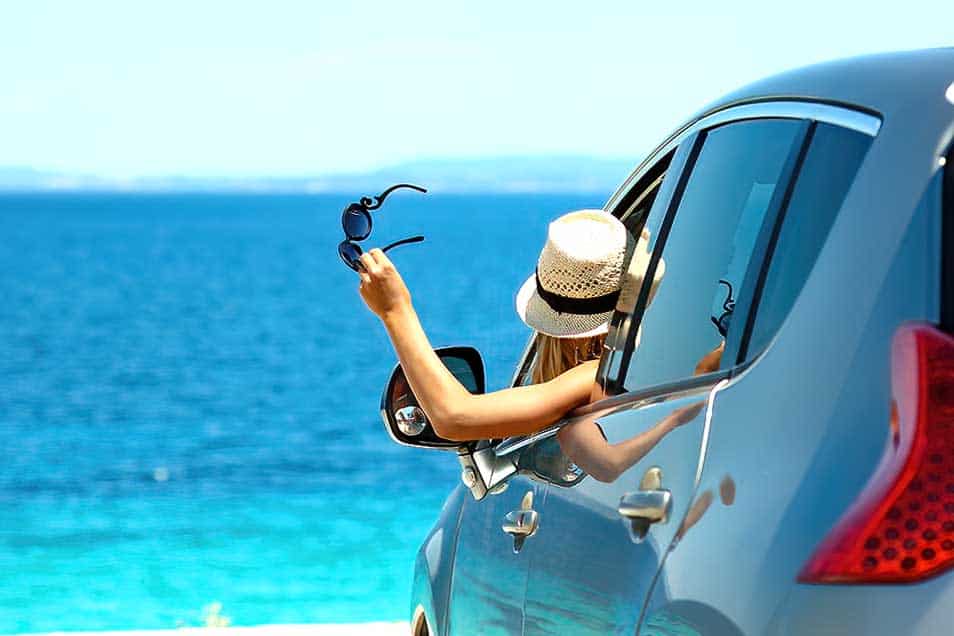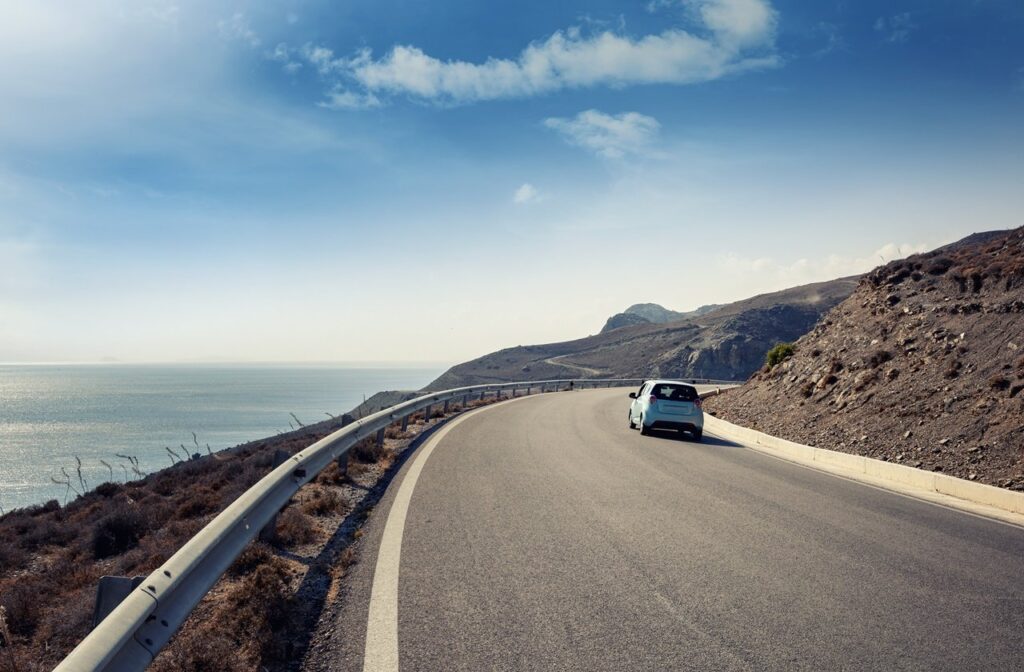- Home
- Business Directory
- Things To See & Do
- Car Hire
- News
- Properties
- Event Guide
ES
Driving in Spain
Driving in Spain: everything you need to know
If you are considering a vacation in Spain, or you are planning on moving to Spain, you will want to familiarise yourself with the local driving regulations. Perhaps you’re a resident looking to acquire a vehicle but are unsure where to begin, especially given the changes after Brexit. In light of these developments, understanding the updated rules for driving legally in Spain is crucial. This comprehensive guide covers essential aspects such as licences, car registration, and maintenance laws.

Spain, renowned for its diverse landscapes, is an ideal destination for exploration and road trips. However, the driving norms in Spain can be very different from those in other countries, necessitating additional paperwork that one might not typically carry.
Driving in Spain

Driving in Spain offers travellers a convenient and flexible way to explore the country’s diverse landscapes, from bustling cities to picturesque rural areas. Spain boasts a well-maintained and extensive road network, including highways (autovías) and secondary roads (carreteras comarcales). Major cities are connected by high-speed motorways, making it easy to cover long distances efficiently.
In terms of regulations, driving in Spain aligns with many other European countries. Driving is on the right, and overtaking occurs on the left. Numerous road safety laws and vehicle equipment requirements are recognizable to EU/EFTA citizens. Spain boasts a laid-back driving culture, and it has one of the lowest rates of fatal traffic accidents in the EU.
Traffic Regulations

Drive on the Right: In Spain, as in most countries in Europe, you drive on the right-hand side of the road.
Seatbelts: All passengers in a vehicle must wear seatbelts at all times.
Speed Limits: Speed limits vary depending on the type of road. In urban areas, it’s typically 50 km/h, on secondary roads it’s 90 km/h, and on highways, it’s 120-130 km/h.
Alcohol Limit: The legal blood alcohol limit is 0.05% (approximately one and a half glasses of beer or two glasses of wine).
Mobile Phones: It is illegal to use a hand held mobile phone while driving in Spain. Drivers are allowed to follow navigation directions from a mobile phone as long as they don’t touch it.
Parking: In cities, finding parking can be challenging. Look for public parking garages or designated parking areas.
Many towns and cities have blue zone parking, where you need to display a parking disc indicating your arrival time.Check our parking page to see parking areas in Granada and the Costa Tropical.
Tolls: Spain has an extensive network of toll highways. Payment can be made in cash, by credit card, or via electronic toll systems.
Signage: Road signs in Spain follow European standards and are generally clear and easy to understand.
Roundabouts: Roundabouts are common in Spain. Vehicles already inside the roundabout have the right of way.
Filling/Charging Stations: Petrol/gas stations (gasolineras) are widely available, with both full-service and self-service options.
There are twenty EV charging stations in the Costa Tropical area, including seven in Motril and five in Almuñecar. New charging stations are being added all the time.
Language Barrier: While many road signs are in Spanish, major highways and tourist areas often have signs in English and other languages.
Emergency Services: In case of an emergency, dial 112 for assistance.
Low emission zones (LEZ) are currently active in Spain, particularly in Barcelona, with additional environmental rules in cities like Sevilla, Valencia, and Valladolid. Legislation has been passed, mandating towns with over 50,000 residents to adopt an LEZ by 2023.
The Directorate-General for Traffic (DGT) oversees Spain’s road transport network.
To drive in Spain, one must be at least 18 years old and possess a valid driver’s licence. EU/EFTA citizens can use their home country’s licence, but they need to register with local authorities and replace it with a Spanish licence upon expiration. Non-EU/EFTA nationals can use their international driving licence for six months before needing to exchange it for a Spanish one or obtaining an international driving permit (IDP) valid for up to a year.
For licences issued in another language, translation into Spanish or accompanying it with an IDP is necessary.
Driving Licences in Spain
In Spain, the DGT issues driving licences in a credit card format, including the holder’s details and a ten-year validity.
Obtaining a Driver’s Licence in Spain
Spanish residency and passing a two-part driving test are prerequisites for obtaining a Spanish driving licence, except for those exchanging a foreign licence, subject to specific country standards.
Exchanging a Foreign Driver’s Licence in Spain
Post-Brexit, issues persist for UK licence holders in Spain. EU/EFTA nationals renew their licence upon expiration, essentially exchanging it for a Spanish one. Non-EU citizens usually exchange their licence after six months (or one year with an IDP). Certain countries have agreements for a straightforward exchange, while others may require passing the Spanish driving test.
To exchange a foreign licence, an appointment with a police station or traffic office, completion of an exchange form, and providing ID, proof of Spanish residency, and the current driver’s licence are necessary.
Taking a Driving Test in Spain
Citizens of various countries, including the US, Canada, Australia, New Zealand, and South Africa, must complete the entire Spanish driving test to obtain a Spanish licence. The process involves submitting an application, a fitness certificate, passport-sized photos, residence permit, proof of address, and declarations.
Registering and Maintaining a Car in Spain
All vehicles in Spain must be registered with the DGT. While dealerships typically handle new car registrations, importing a vehicle requires re-registration, involving proof of ownership, EU Certificate of Conformity, and inspection at a licenced vehicle inspection (ITV) station.
Maintenance tests for cars aged four and older are mandatory every two years until ten years, followed by annual inspections. Driving and maintaining a car in Spain incurs various costs, with Spain ranking as the eighth most expensive European country for car-related expenses.
General Road Rules and Penalties in Spain
Spain’s Traffic and Road Safety Code outline rules and standards. Key regulations include driving on the left, seatbelt requirements, right-of-way at roundabouts, snow chain usage in mountainous regions, limited horn usage, and penalties for minor infractions, typically payable on the spot.
Driving Without a Licence in Spain
Driving without a valid licence is a severe offense in Spain, resulting in substantial fines, driving restrictions, or even imprisonment.
Car Hire
Minimum age to rent a vehicle in Spain is normally 21 years (25 for certain types of vehicles), although there are some plans where the minimum age is lowered to 18 years old. You will be required to furnish a valid driver’s licence from your home country, a credit card and a passport. Some car hire companies may also ask for proof of home address.
Prices
The price of renting a car in Spain can vary widely, depending on the time of year and the region. On average, booking a small car rental in Spain costs about €25/day, though it is possible to rent a car for less than half that in the January-March period. The cheapest month to rent a small car in Spain is January, which would cost around €14 a day. The most expensive month for small car rentals is July, when prices can start from €45 a day. The security deposit (fianza) can be anywhere between €250 to €1,000, or the equivalent of one month’s rent. Before driving the car away, make sure you check it for any damage. Many companies will examine the car with you and mark off any existing dents and scratches etc., so that you are not held liable.
Use the search box below to find the cheapest and most convenient options available to suit your requirements.
